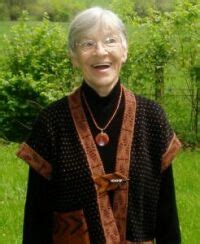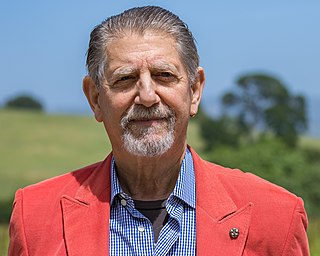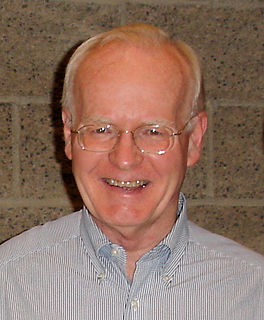A Quote by George Eliot
The idea of duty, that recognition of something to be lived for beyond the mere satisfaction of self, is to the moral life what the addition of a great central ganglion is to animal life. No man can begin to mould himself on a faith or an idea without rising to a higher order of experience: a principle of subordination, of self-mastery, has been introduced into his nature; he is no longer a mere bundle of impressions, desires, and impulses.
Quote Topics
Addition
Animal
Animal Life
Been
Begin
Beyond
Bundle
Central
Desires
Duty
Experience
Faith
Great
Higher
Himself
His
Idea
Impressions
Impulses
Introduced
Life
Lived
Longer
Man
Mastery
Mere
Moral
Moral Life
Mould
Nature
Order
Principle
Recognition
Rising
Satisfaction
Self
Something
Subordination
Without
Related Quotes
......at this point the self has obviously outworn its function; it is no longer needed or useful, and life can go on without it. we are ready to move on, to go beyond the self, beyond even its most intimate union with God, and this is where we enter yet another new life- a life best categorized, perhaps, as a life without a self.
The young man who addresses himself in stern earnest to organizing his life-his habits, his associations, his reading, his study, his work-stands far more chance of rising to a position affording him opportunity to exercise his organizing abilities than the fellow who dawdles along without chart or compass, without plan or purpose, without self-improvement and self-discipline.
One of the most revolutionary concepts to grow out of our clinical experience is the growing recognition that innermost core of man's nature - the deepest layers of his personality, the base of his 'animal nature' - is basically socialized, forward-moving, rational and realistic... He is realistically able to control himself, and he is incorrigibly socialized in his desires. There is no beast in man, there is only man in man.
Nothing about his life is more strange to [man] or more unaccountable in purely mundane terms than the stirrings he finds in himself, usually fitful but sometimes overwhelming, to look beyond his animal existence and not be fully satisfied with its immediate substance. He lacks the complacency of the other animals: he is obsessed by pride and guilt, pride at being something more than a mere animal, built at falling short of the high aims he sets for himself.
The idea of absolute freedom is fiction. It's based on the idea of an independent self. But in fact, there's no such thing. There's no self without other people. There's no self without sunlight. There's no self without dew. And water. And bees to pollinate the food that we eat...So the idea of behaving in a way that doesn't acknowledge those reciprocal relationships is not really freedom, it's indulgence.
Once the idea of a supernaturalistic creation is fully overcome, the idea returns that the universe must be self-organizing and therefore composed of self-moving parts. Also, insofar as dualistic assumptions are fully overcome and human experience is accepted as fully natural, it begins to seem probable that something analogous to our experience and self-movement is a feature of every level of nature.
Convince a man that he is an animal, that his own dignity and selfrespect are delusions, that there is no 'beyond' to aspire to, no higher potential self to achieve, and you have a slave. Let a man know he is himself, a spiritual being, that he is capable of the power of choice and has the right to aspire to greater wisdom and you have started him up a higher road.
In eloquence, the great triumphs of the art are when the orator is lifted above himself; when consciously he makes himself the mere tongue of the occasion and the hour, and says what cannot but be said. Hence the term "abandonment" to describe the self- surrender of the orator. Not his will, but the principle on which he is horsed, the great connection and crisis of events, thunder in the ear of the crowd.
In ancient times, any man rising up above the common people tried to shape his life according to his principles; it is no longer like than now; it is (because) for the ancients, moral was a principle of inner life, whereas in our days, most of the time one is content to adhere to an official moral, that we recognize in theory, but that one does not care to put into practice.
What does it mean to be a self-conscious animal? The idea is ludicrous, if it is not monstrous. It means to know that one is food for worms. This is the terror: to have emerged from nothing, to have a name, consiousness of self, deep inner feelings, an excruciating inner yearning for life and self-expression and with all this yet to die. It seems like a hoax, which is why one type of cultural man rebels openly against the idea of God. What kind of deity would crate such a complex and fancy worm food?
If love is the soul of Christian existence, it must be at the heart of every other Christian virtue. Thus, for example, justice without love is legalism; faith without love is ideology; hope without love is self-centeredness; forgiveness without love is self-abasement; fortitude without love is recklessness; generosity without love is extravagance; care without love is mere duty; fidelity without love is servitude. Every virtue is an expression of love. No virtue is really a virtue unless it is permeated, or informed, by love.






































